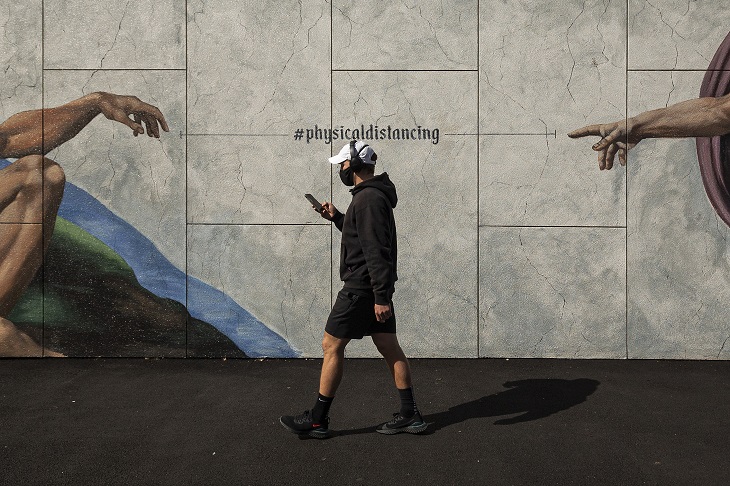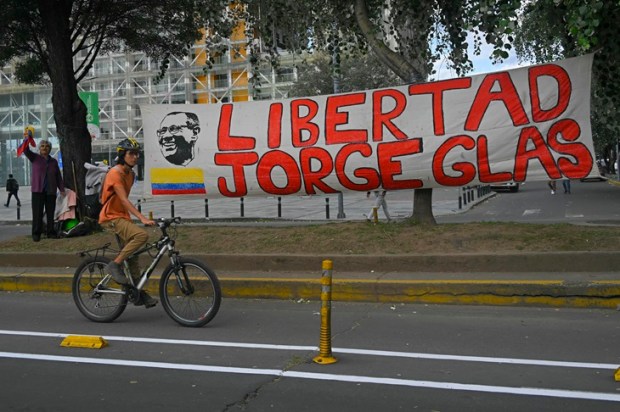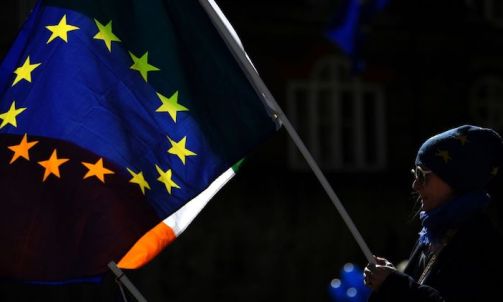For two and a half years, many endured the impacts of authoritarian decisions made by politicians and unelected bureaucrats, spurred on by a raging mob of people. The effects of the terrible policy they created will linger for years, even decades, be it in the form of unemployment, ill health, or social isolation.
In an insulting turn of events, those who ruined everyone’s lives are demanding amnesty. They want grace for what they did because (apparently) they knew so little about what was going on that they never guessed their actions would make things worse.
Yeah, right.
First and foremost, if this is the case and they were unsure, why did they think it would be a good idea to act in such a heavy-handed manner? Why did they pretend they had all the answers? Why did they force people to subscribe to a certain narrative and be hounded down and treated poorly if they said anything to the contrary?
If they knew so little, they should have been open to dissenting ideas, rather than silencing and discrediting those with views opposing the mainstream narrative. Perhaps they might have listened and taken into consideration what the dissenters were saying.
In the end, those people maliciously labelled ‘conspiracy theorists’, ‘anti-vaxxers’, ‘science deniers’, and every name under the sun … were right.
An article written by Professor Emily Oster for The Atlantic, entitled Let’s Declare a Pandemic Amnesty calls for forgiveness for one another ‘for what we did and said when we were in the dark about Covid’.
Those who remained sensible and stuck to their guns throughout the pandemic, choosing not to cave to undue pressure and the abusive rhetoric of certain people, certainly do not need forgiveness. We did not demand lockdowns. We did not demand everyone take the vaccine. We did not go around saying people were killing grandma if they did not ‘follow the science’. We did not demand people ‘mask up’. We did not tell people they could not work.
But those people who did all of that and more now beg for the grace that they failed to extend to those who were both factually and morally right when they were wrong.
Emily Oster writes in her piece that, ‘When the vaccines came out, we lacked definitive data on the efficacies of the Johnson & Johnson shot versus the mRNA options from Pfizer and Moderna.’
Quite frankly, given we lacked that data, mandates should have been discouraged from the get-go and never should have been accepted or pushed by anyone. She claims this ‘wasn’t nefarious’ but ‘was the result of uncertainty’. Absolutely not. There were plenty of individuals in positions of power who knew better but chose to prioritise the narrative over the wellbeing of the people they were supposed to be looking out for.
Ironically, Oster does note that ‘some people intended to mislead and made wildly irresponsible claims’. But what is cited as intentionally misleading and irresponsible? Not the claims about vaccines being ‘safe and effective’… The examples offered relate to the time when public health officials had to warn people not to inject themselves with bleach, potentially laying blame at the feet of former President Donald Trump, who made comments that were taken wildly out of context at the time by mainstream media outlets.
The article also claims that ‘misinformation was, and remains, a huge problem’. The definition of misinformation is up for grabs, given what we know about the whole safe and effective line, but somehow I don’t think that’s what she’s alluding to.
Apparently, ‘most errors were made by people who were working in earnest for the good of society’. If these people were truly working for the good of society, then they wouldn’t have actively pursued an agenda that was at odds with all that is good. Instead, they would have accepted that they were wrong when it came to policy and what they were doing, stopped pursuing the wrong path, and corrected course.
Oster makes a bold claim that, ‘In the face of so much uncertainty, getting something right had a hefty element of luck. And, similarly, getting something wrong wasn’t a moral failing.’
Not quite.
I am going to rephrase that in a way that is far more accurate. Getting something right was a matter of perception and independent thought. Getting something wrong would not have been a moral failure if the individual who got it wrong could admit they were wrong and correct course. If, however, they could not do this, nor comprehend it, it was most definitely an abject moral failure.
Oster says:
‘We have to put these fights aside and declare a pandemic amnesty. We can leave out the willful purveyors of actual misinformation while forgiving the hard calls that people had no choice but to make with imperfect knowledge. We need to learn from our mistakes and then let them go.’
Well, no. We cannot just declare an amnesty, because then people would get away with what they did and go ahead and do it again. It is all well and good to claim that people will learn from their mistakes, but the individuals in question, those who abused their power for personal and political gain, cannot be trusted not to do the same the next time around. Claiming that they had no choice is ridiculous. They had a choice.
Further, characterising these decisions as ‘mistakes’ is akin to characterising a nuclear attack as a ‘mistake’. Each government seemed to be in lockstep with its counterparts around the world. The ones who did not follow the narrative, the ones who did not impose harsh restrictions and mandates, were publicly denigrated and demeaned. So please, spare me the sanctimony.
Plenty of articles similar to this one appear to, not so subtly, sway people into forgiving and forgetting. They want us to just go along with the line that everyone makes mistakes, that is it only human…
Forgive me if I refuse to stand here and act like it’s all good.
Those enamoured with pandemic measures put us through hell. They broke people. People died after taking a vaccine they were pressured into. Others are suffering ongoing adverse effects with lifelong health conditions. People took their own lives because of lockdowns and mandates. This is not a harmless mistake that was made. This was a disaster. It was a catastrophic failure of morality and humanity. It was by all means inhumane.
Can we really forgive people for all they said and did? It is difficult. For me, as a Christian, forgiveness is central to my faith and so it puts me in an interesting dilemma. On the one hand, I am furious at the actions that were taken, at the abuses of power that entailed, and at the moral failures that occurred. Yet, on the other, forgiveness is something that I, and other Christians like me, must consider.
Others may not face this dilemma, but I think there is a universal solution to this problem.
Yes, we can forgive, but we cannot forget. We can offer forgiveness, but we cannot allow that to usurp accountability. We must demand that every individual who allowed these atrocities is held accountable. Further, those who committed the atrocities should be held liable to the highest order and must face the consequences of their actions. The grace that these people will be shown is one by which they well and truly learn their lesson, one where they are shown the repercussions of the despicable actions they took.
There may be grace for the graceless, but it will come at a hefty cost.
Joel Agius is an independent writer. If you would like to read more of his work, you can do so at JJ’s Outlook or keep up to date with his musings on Twitter.
Got something to add? Join the discussion and comment below.
Get 10 issues for just $10
Subscribe to The Spectator Australia today for the next 10 magazine issues, plus full online access, for just $10.


























Comments
Don't miss out
Join the conversation with other Spectator Australia readers. Subscribe to leave a comment.
SUBSCRIBEAlready a subscriber? Log in